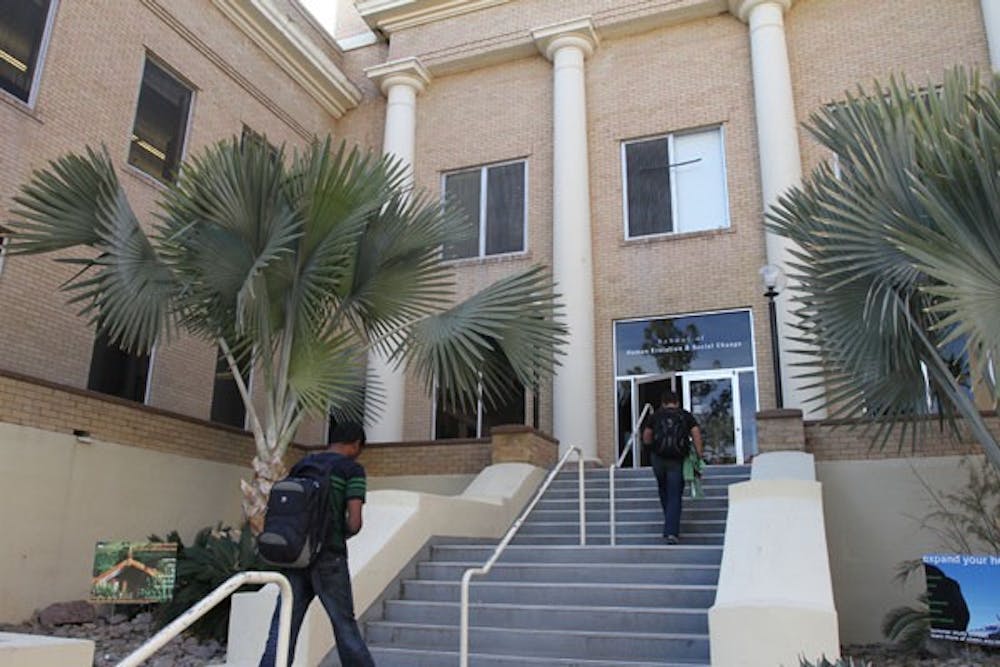ASU’s School of Human Evolution and Social Change is preparing to introduce a new global health master’s degree program in the fall, incorporating cutting edge social science theories to tackle worldwide health issues.
Debra Palka, assistant director of the School of Human Evolution and Social Change, said the program is unique in its approach to health.
“It really offers an array of research projects in different countries, building off a foundation of global challenges.”
Alexandra Brewis Slade, associate director of the school, said global health is different from traditional public health, where training focuses on disease and emphasizes individual responsibility in prevention.
“Global health uses a range of theories from anthropology, sociology, political science and so on, to address diseases and ill health in a way that’s not standard,” she said.
The program emphasizes the study of epidemiology, bringing a range of different skills and training as a foundation for students to grow from. This provides for better skills in cross-cultural settings, and applying diverse types of data to complex problems.
“It really frames solutions that are outside the box,” she said.
The master’s degree is based on a collaborative learning model, placing students in the field with professionals. The program focuses on four global health issues: climate change-related disease; obesity and food insecurities; health education and behavior change; and reemerging and neglected infectious diseases.
Students are required to complete a summer internship working on one of the four collective research projects.
“The global health program also offers a very strong social justice component that you see in everything we do,” Slade said. “We are trying to take a much broader view of health that really transcends and goes outside a traditional public health approach.”
Students have shown a great sense of community and commitment to this degree so far, Slade said.
“I have really been fundamentally and profoundly impressed by people coming into the degree, that’s why we are moving ahead with the master’s,” she said.
The global health approach takes a critical eye in diseases that are the most challenging in a community and cannot be solved through a single approach.
“We look at the issues that are necessarily a product of structural inequalities, political difficulties and evolutionary complexities,” she said.
Senior Jennifer Grand switched to the global health undergraduate program in spring 2009 and said she instantly felt a connection with the program.
“It all came really naturally to me,” she said. “It was really cool to finally find my niche.”
Grand also became involved with the global health student association and has served as president since May. She has also participated in several collaborative health studies overseas.
“Getting to know the faculty better and traveling with them in a global setting really puts it all together,” she said. “You get a whole rounded experience by taking these classes that directly relate to what you are doing.”
Students coming out of the master’s degree program will have highly developed research and teamwork skills that essential to the health field, Slade said. Graduates will also have a proven track record of working in vulnerable communities and across different cultures, he said, which will set them apart from other graduates.
The School of Evolution and Social Change also offers a conjoined program with the bachelor’s degree in global health, where students are able to complete a master’s degree in five years. This opportunity allows students to start working on research teams as freshmen and really build up speed in the program, Slade said.
“It’s exciting for me to see students see things with new eyes, and share something you love with them,” she said.
Reach the reporter at amoswalt@asu.edu





